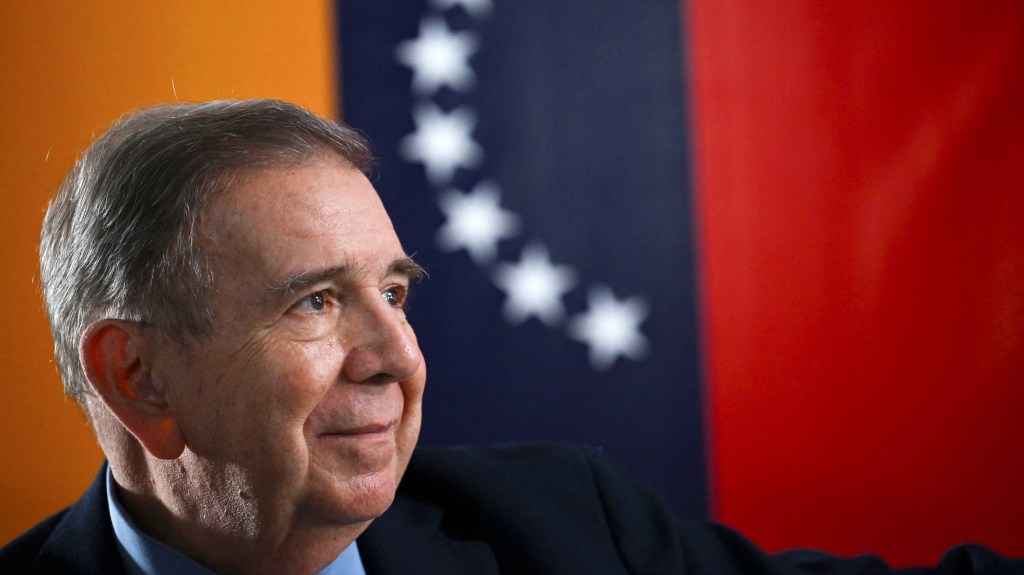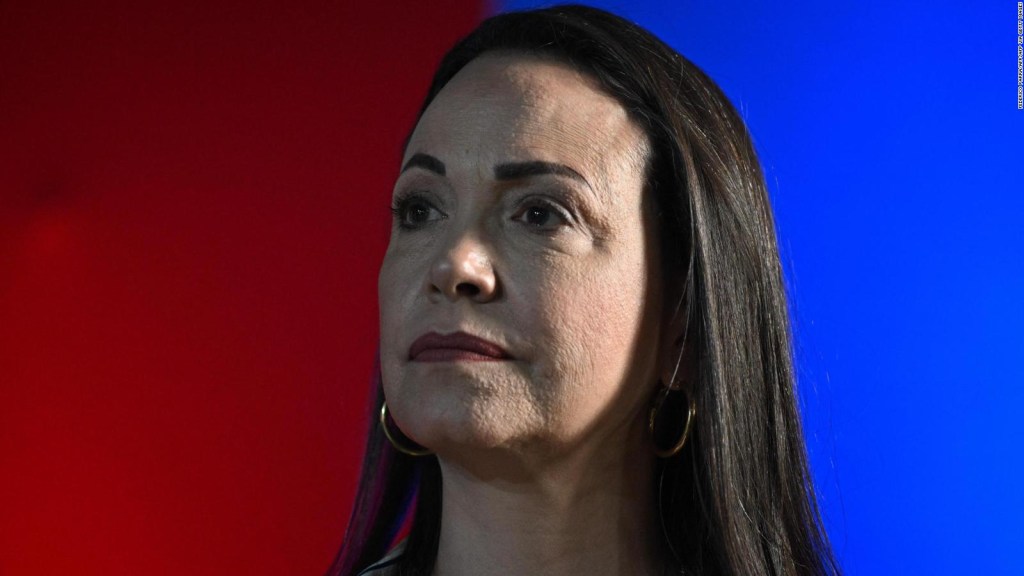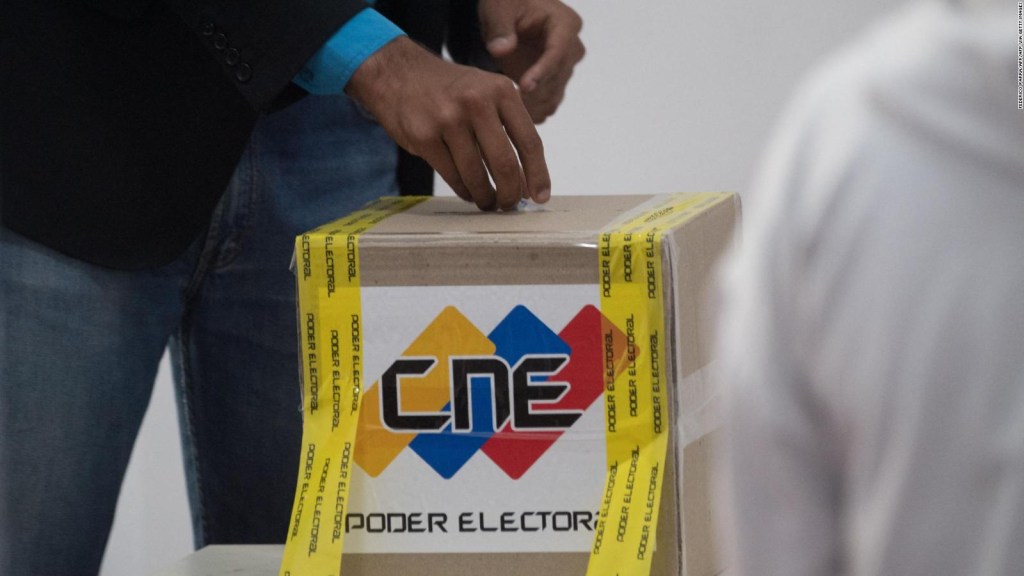( Spanish) — In Venezuela there will be elections on July 28 and part of the focus is on the chances that the majority opposition candidate, Edmundo González Urrutia, will have to become president of the country.
The former Venezuelan diplomat is in that position due to a combination of two factors: the disqualification imposed by the Comptroller General of the Republic on the winner of the opposition primary, María Corina Machado, from aspiring to popularly elected positions; and the impossibility of registering Machado’s replacement, the academic and philosopher Corina Yoris, as a candidate.
González Urrutia was already registered as a provisional option for the Democratic Unity Roundtable (MUD) alliance in the National Electoral Council (CNE). The situations that Machado and Yoris faced led the Democratic Unitary Platform (PUD) to ratify their registration as presidential candidate
- ANALYSIS | Edmundo González Urrutia, a quiet grandfather and lover of birds, faces Venezuela’s strongman, Maduro
In this scenario, Machado’s support was decisive and will continue to be decisive, according to analysts consulted by , who highlight that the leadership of the former Venezuelan deputy joins the social demand for political change and questioning the Government of President Nicolás Maduro. .
María Corina Machado’s support for González Urrutia: Are the votes transferable?
“The polls say that people would vote for whoever María Corina indicates, but it was not clear if that endorsement capacity could be given. What the surveys are showing today is that yes,” Carmen Beatriz Fernández, a doctor in public communication from the University of Navarra and director of the consulting firm DataStrategia, tells .
Fernández adds that there is “extensive knowledge” of the opposition candidate, who just a few months ago was “completely unknown” and a great transfer of that endorsement capacity.
The leader of the Venezuelan opposition María Corina Machado and the opposition presidential candidate for the Democratic Unitary Platform, Edmundo González. (Photo by JUAN BARRETO/AFP via Getty Images)
John Magdaleno, political scientist and director of the public affairs consulting firm Polity, agrees with this panorama, saying that the national sample surveys “are quite eloquent in that the gap in favor of González Urrutia is very wide,” and that it may be operating a transfer of votes because María Corina Machado herself is campaigning with and for him.
The person who said he did not completely agree on this point is González Urrutia himself, who considered that María Corina Machado’s electoral wealth is “important”, but not transferable to another person. “It’s not a question of transferability, she has it and there it is,” he said in an interview with in May.
A brief campaign, for or against?
Although the formal campaign will be between July 4 and 25, the candidates are already touring the country. Between the end of May and the first half of June Machado visited the most remote corners of Venezuela asking for the vote for the ambassador, while González Urrutia has remained in Caracas giving interviews to the media and attending events near the Venezuelan capital.
“If you have to make a candidate known from scratch, it may seem like two months is a short time, but here it has been done. Partly because María Corina has become an electoral phenomenon that has been generating many adhesions and a lot of emotion, especially in her journey through intermediate populations,” analyzes Fernández.
For Magdaleno, the fact that González Urrutia has to spend just a few months as a candidate would not represent a conflict and he even believes that it could be beneficial. He points out the following reason: “It is a short campaign in a climate of opinion of much rejection, not only of Nicolás Maduro but fundamentally around the entire political regime and its performance. “It may prevent the ruling party from experiencing a much more substantial recovery in its voting intention and favorability.”
Although the opposition has the challenge of organizing itself very effectively, the biggest problem is how the ruling party will recover the lost support in a short campaign, says fellow professor at the Catholic University Andrés Bello (UCAB).

Edmundo González: We do not rule out analyzing a possible amnesty for those investigated by the Maduro regime (Credit: JUAN BARRETO/AFP/AFP via Getty Images)
María Corina Machado’s leadership until and after July 28: what happens if González Urrutia wins the elections? What if he loses?
More than 21 million Venezuelans are eligible to vote in the presidential elections of July 28, according to the final data cut of April 16, 2024, published in June by the National Electoral Council (CNE).
Both specialists consulted by agree that the surveys circulating reflect a mood for social change in the country, something that the former ambassador could capitalize on.
Between 2014 and 2021, Venezuela suffered a 76% drop in its GDP, according to a report by the Venezuelan Finance Observatory organization. And according to the Interagency Coordination Platform for Refugees and Migrants, there are 7.7 million Venezuelans spread around the world who fall within these two definitions. A good part of them have left the country during the Maduro era.
What could happen to the figure of the founder of Vente Venezuela if González Urrutia comes to power?
If the result is favorable, she will remain a beneficiary of this cycle of political-electoral mobilization, says Magdaleno. Although it is likely that being disqualified from exercising public office she will not be able to capitalize on that power immediately personally, Magdaleno says that her party would probably do so in the parliamentary, regional and local elections of 2025, although she warns that her group has the restriction that has not been legalized by the National Electoral Council.
The role that Machado could play in an eventual mandate of González Urrutia is not yet defined, but the opposition candidate made it clear in interview with in May that there is “no opposition to his being able to occupy any relevant position within the Government” if he so wishes.
What if the change does not happen and the opposition loses the elections? “Evidently it would be a very great frustration, but also a very clear danger: a new wave of migration,” predicts Fernández.
This is something that the opposition leader has reiterated on several occasions in public statements. If Maduro remains in power, there will be “the largest wave of migration that Venezuela has ever experienced,” he said in an interview with Andrés Oppenheimer on , and spoke of the possibility that up to five million Venezuelans will flee the country in the next few years. years.

A demand for political change that transcends the candidates
Analysts assure that the demand for political change in Venezuela is visible.
Magdaleno mentions that the data from opinion studies that have been repeated since last year have an explanation: “There is a lot of fatigue, a lot of irritation, a lot of discomfort and a lot of disenchantment, frustration due to accumulated expectations. Political change is almost a national cry. That makes everything else easier. The opposition has been stimulating electoral participation, among other things because of the opportunity presented by a demand for political change like that,” he analyzes.
The political strategy specialist says that this demand for change – which, he assures, has grown steadily over the last few years – is also seen in those interviewed who “define themselves as Chavistas.” And he adds that the magnitude of this desire for change explains the effectiveness of the transfer of voting intention towards the candidate of the Democratic Unitary Platform.
“I do not underestimate the importance of María Corina Machado’s support, what I am saying is that, even much more powerful than that, is the weight of the demand for political change,” summarizes Magdaleno.
For his part, Fernández does not hesitate to affirm that Venezuela is in an “exceptional” political moment, and according to his analysis, this was clearly seen in the social mood starting with the opposition primaries last October.
“Political change not only became a national consensus but also a need and a feeling that it was possible to achieve it through electoral means. That change can be attributed to María Corina and that change in social mood is what we are seeing today in this very unique campaign,” explains the professor from the University of Pforzheim.
The risk of another disqualification. Could there be a new substitution for another candidate that Machado supports?
“I comply with all the requirements that the CNE demands. I don’t see what they can appeal to to avoid my candidacy,” said the opposition candidate in an interview with Conclusions, on .
But there is still the possibility that González Urrutia will be disqualified as a candidate for the Democratic Unity Roundtable (MUD).
In March, the political leader Luis Ratti went to the Supreme Court of Justice to request the Constitutional Chamber to annul the Democratic Unity Table card.

The leader’s argument is that in January 2018, Venezuela’s highest court prevented the MUD from legitimizing itself as a political party because it functioned as an alliance of political organizations and contravened the prohibition of dual militancy, although later, in June 2021, The National Electoral Council again granted it the status of a political party to participate in the 2021 regional elections.
But this eventual cancellation of the card would have consequences, analyzes Fernández. He says that it would have a cost behind closed doors for the Government of Nicolás Maduro and could lead to international ignorance of the results of the election.
“I think that at this point it is difficult for there to be a second substitution,” adds the university professor.
In any case, González Urrutia also received the support of the Un Nuevo Tiempo party, of Governor Manuel Rosales.
“That risk will always persist until July 28. If we are talking about a hegemonic authoritarianism that restricts guarantees, and in fact it has done so in the past, it will indeed be a risk,” adds Magdaleno about the current situation in the country.
Although the closer the vote gets, the costs of a new disqualification would be high for the ruling party, the Venezuelan political scientist says that the eventual departure from power would be even more worrying for the Maduro Government.
Venezuelan voters will choose among 10 candidates for the president who will govern the country for the next six years starting January 10, 2025. Polls indicate that the definition would be between Maduro, who is seeking his second re-election, and González Urrutia.
The post ANALYSIS | The María Corina Machado factor, decisive for Edmundo González Urrutia’s chances in the Venezuelan elections appeared first on .














Add Comment